When comparing Thoroughbreds (TBs) and Quarter Horses (QHs), one can immediately recognize their distinct differences in terms of physical abilities and performance, but a less obvious distinction lies in their gut health. The digestive systems of horses, though similar in structure, can present varying challenges across breeds. This is especially evident when looking at Thoroughbreds and Quarter Horses, two of the most popular and versatile breeds in the United States. Gut health plays a vital role in maintaining the well-being, performance, and overall behavior of these horses, and both breeds face unique digestive issues due to their genetics, lifestyle, and dietary requirements.
Gut Health Challenges in Thoroughbreds
Thoroughbreds are renowned for their speed and agility, making them the preferred choice in the racing world. However, their intense training regimens and high-starch diets, often necessary to fuel their energy needs, predispose them to a variety of digestive disorders. One of the most common gut health challenges in TBs is gastric ulcers (1). Studies suggest that racehorses experience gastric ulcers primarily due to the stress associated with training, transport, and their high-energy diets (2).
Their large grain-based meals, meant to provide quick energy, often overload the small intestine, leading to undigested starch passing into the hindgut. This can disrupt the balance of bacteria in the hindgut, resulting in fermentation, gas buildup, and increased acidity. Over time, this imbalance can lead to conditions like colic, bloating, and hindgut acidosis. Thoroughbreds are also more prone to stress-induced gut issues, making managing their digestive health a priority for owners and trainers.
Gut Health Challenges in Quarter Horses
Quarter Horses, on the other hand, are celebrated for their strength, speed over short distances, and versatility in a range of equine sports, including cutting, reining, and barrel racing (3). Unlike Thoroughbreds, QHs tend to have a more balanced temperament, which can reduce the likelihood of stress-related digestive issues (3). However, this doesn’t make them immune to gut health challenges.
Quarter Horses often have to contend with digestive problems related to obesity, as they can easily become overweight if not properly managed (4). Overfeeding or an imbalanced diet can cause excessive starch to reach the hindgut, similar to what occurs in Thoroughbreds, though the problems might manifest more slowly due to the breed's generally more resilient gut.
Additionally, Quarter Horses that participate in high-performance events can still be prone to gastric ulcers and colic, particularly if they are subjected to a high-starch diet, intense training, or stressful environments (5). While the overall incidence of ulcers may be lower than in Thoroughbreds, these issues still significantly affect QHs, especially those involved in competitive sports.
Importance of Gut Health in Horse Performance
Both Thoroughbreds and Quarter Horses can suffer a decline in performance if their gut health is compromised. Whether it's a Thoroughbred losing its edge on the racetrack or a Quarter Horse struggling in a cutting competition, digestive discomfort can lead to decreased stamina, irritability, and behavioral changes. Horses with poor gut health may show reluctance to perform, become irritable, or exhibit signs of colic, which can disrupt training and competition schedules.
Maintaining optimal gut health is crucial to ensuring that both breeds can perform at their best. Proper feeding regimens, stress management, and the inclusion of digestive aids can all contribute to improved gut function and overall well-being. This is where products like EquiNectar® come into play.
How EquiNectar® Can Help Improve Gut Health
EquiNectar® is a natural digestive supplement made from malted barley, designed to support and enhance gut health in horses. What makes it particularly beneficial is its high content of active digestive enzymes and natural goodness preserved from the barley grain. These enzymes help to break down the food horses consume, optimizing digestion and reducing the strain on the gut, especially the hindgut, which can be prone to fermentation and gas production.
The malted barley in EquiNectar® provides essential B vitamins, notably folate and niacin, which are crucial for maintaining the horse's overall health. But its main action lies in promoting the growth of beneficial bacteria in the gut. By supporting the microbial balance, EquiNectar can contribute to reducing the harmful effects of undigested starch that often leads to bloating, colic, and irregular dropping consistency. Horses that struggle with digestive issues, including both Thoroughbreds and Quarter Horses, can benefit significantly from this product.
For Thoroughbreds, who often suffer from hindgut acidosis and ulcers due to high-starch diets and stress, EquiNectar® can be a game-changer by reducing the starch load on the large intestine and supporting healthy bacterial growth. This can potentially decrease episodes of gas, discomfort, and irritability, allowing the horse to focus on its training and performance.
Similarly, Quarter Horses that may be predisposed to weight gain or occasional digestive issues due to diet changes can also benefit from EquiNectar®’s ability to optimize hindgut bacteria. The supplement acts to improve dropping consistency, reduce bloating, and promote an overall calmer demeanor, especially in horses that may exhibit irritability due to gut discomfort.
Furthermore, EquiNectar®’s palatability makes it appealing even to the fussiest of horses, encouraging them to finish their feed and receive the nutritional and digestive benefits it offers. This ease of integration into any horse's diet ensures that all types, whether a high-energy Thoroughbred or a versatile Quarter Horse, can enjoy the digestive support they need.
Conclusion
In conclusion, while both Thoroughbreds and Quarter Horses face distinct challenges when it comes to gut health, proper dietary management, stress reduction, and the use of supplements like EquiNectar® can make a substantial difference in their digestive well-being. Thoroughbreds need extra care to avoid hindgut acidosis and ulcers due to their intense energy demands, while Quarter Horses require attention to prevent weight-related gut issues. EquiNectar®’s natural formula, rich in digestive enzymes and beneficial bacteria, is an excellent option for promoting gut health and ensuring that both breeds continue to perform at their peak without discomfort or digestive disturbances.
References
- UCDAVIS. (2019, January 29). Equine Gastric Ulcer Syndrome. UC Davis Veterinary Services.
- Hwang, H., Dong, H. J., Han, J., Cho, S., Kim, Y., & Lee, I. (2022). Prevalence and treatment of gastric ulcers in Thoroughbred racehorses of Korea. Journal of veterinary science, 23(2), e19.
- Cochran, C. (2024). American Quarter Horse Breed Characteristics, Health & Nutrition Guide. MB Mad Barn.
- Heeringa, K. (2024). Obesity in Horses: Health Risks, Prevalence & Management Strategies. MB Mad Barn.
- Gehlen H., Reimer-Diesbrock S., Stockle S. Prevalence, anatomical distribution and risk factors associated with equine gastric ulceration syndrome in American Quarter Horses. Pferdeheilkunde. 2019;35:403–415.


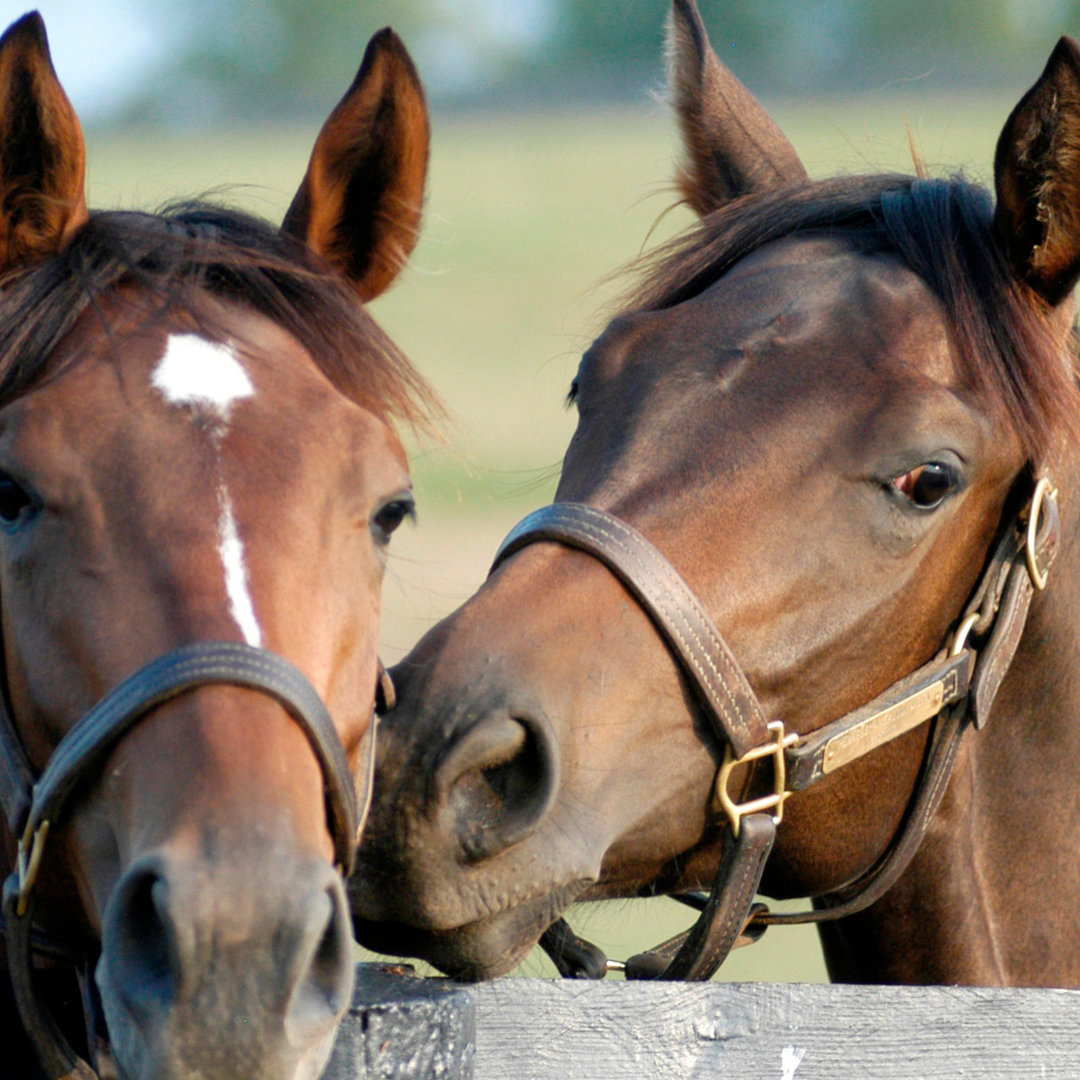
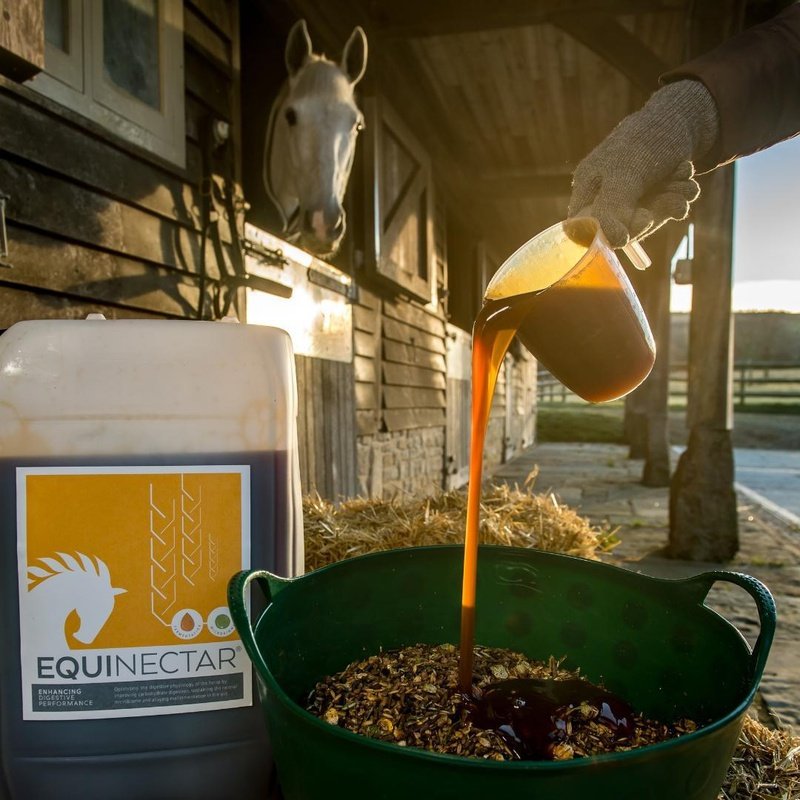
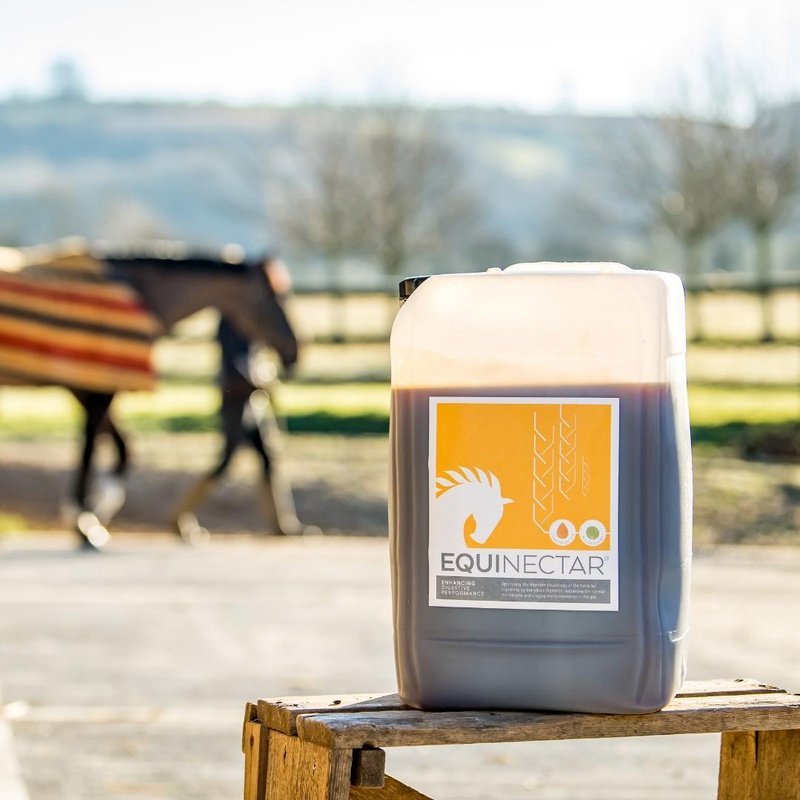
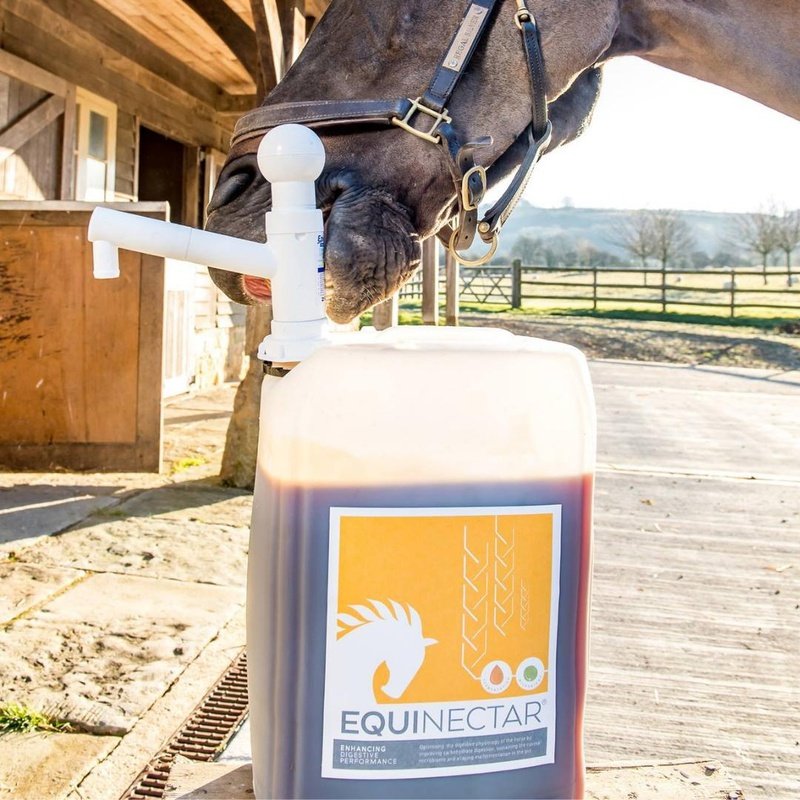
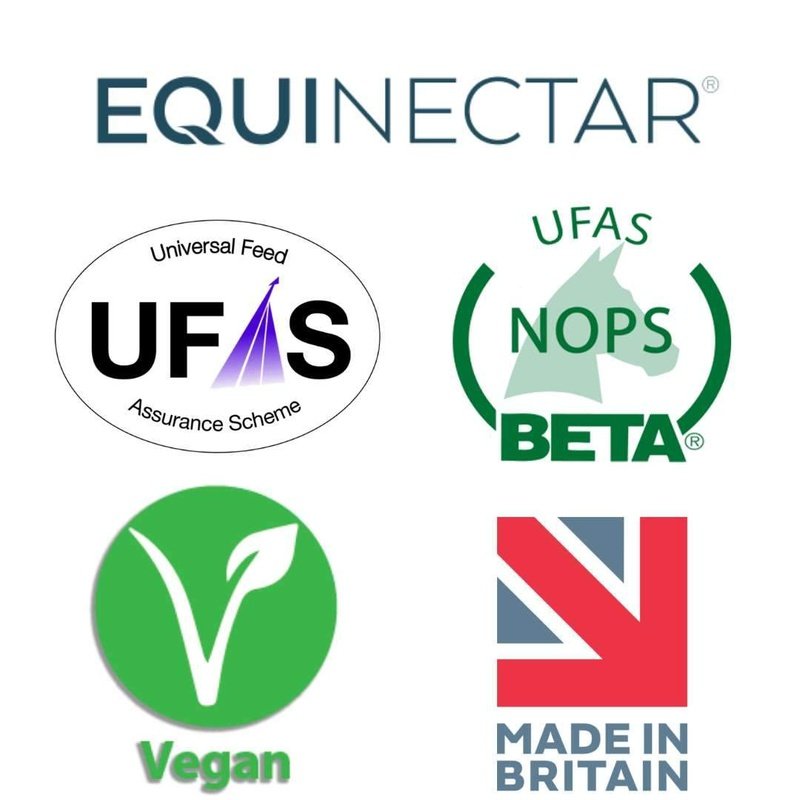
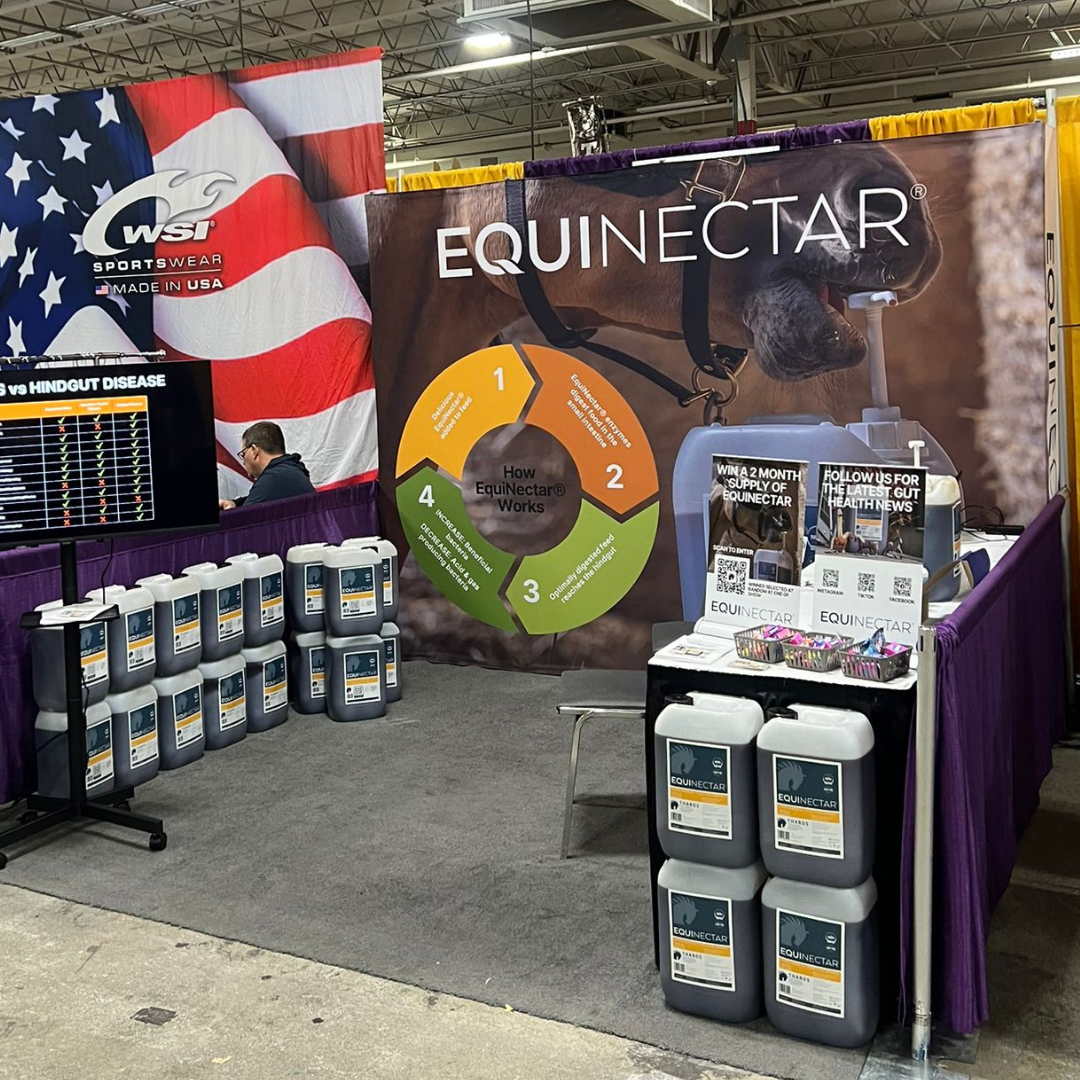

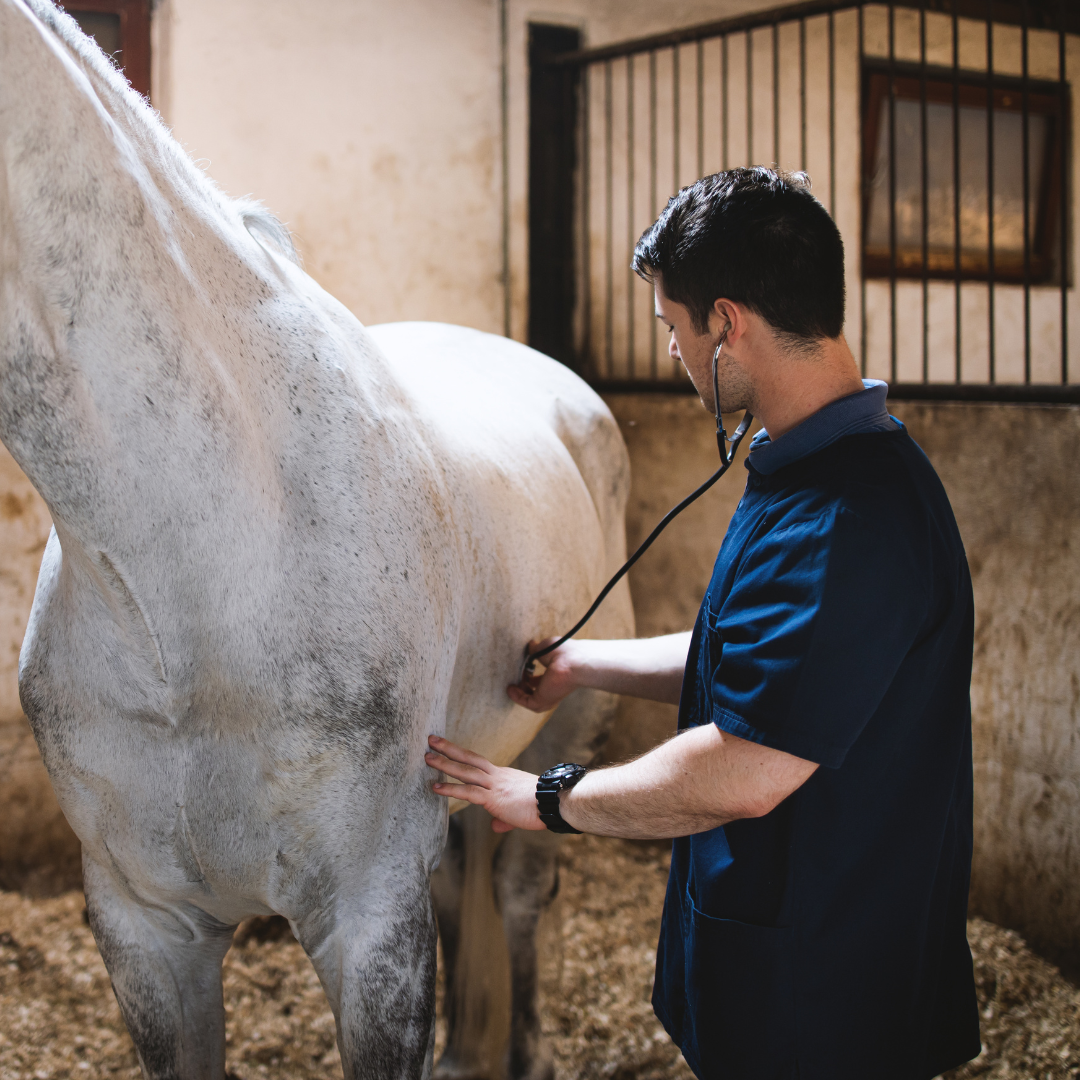
Share: